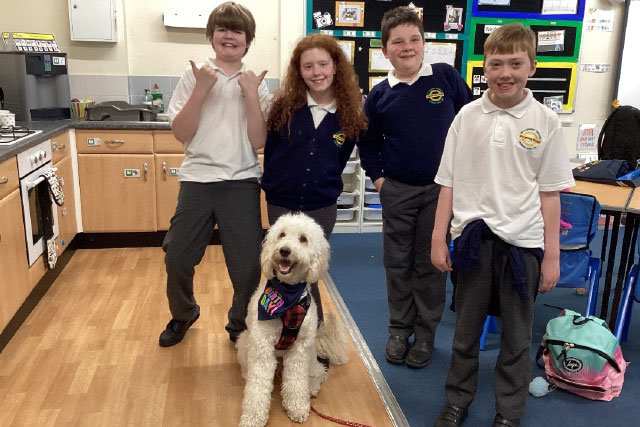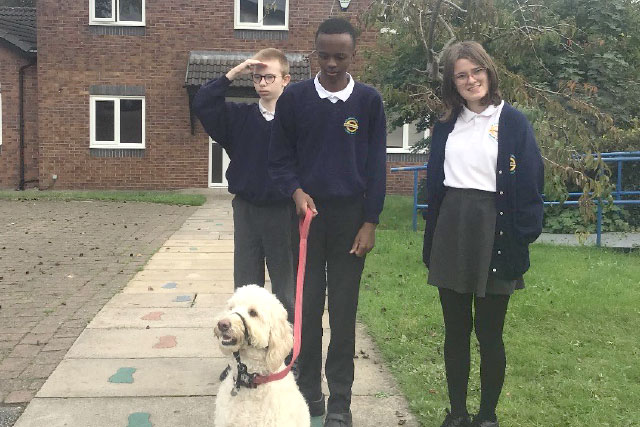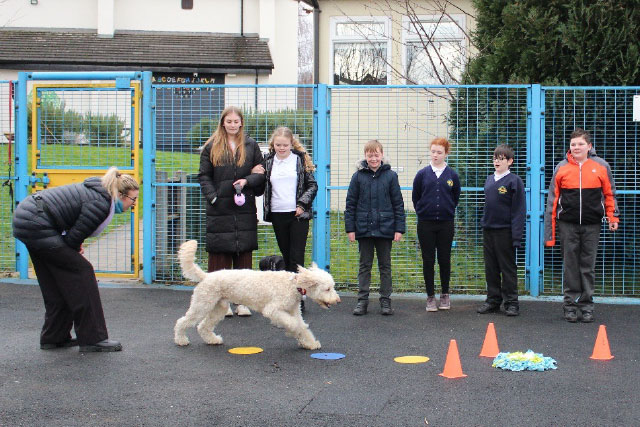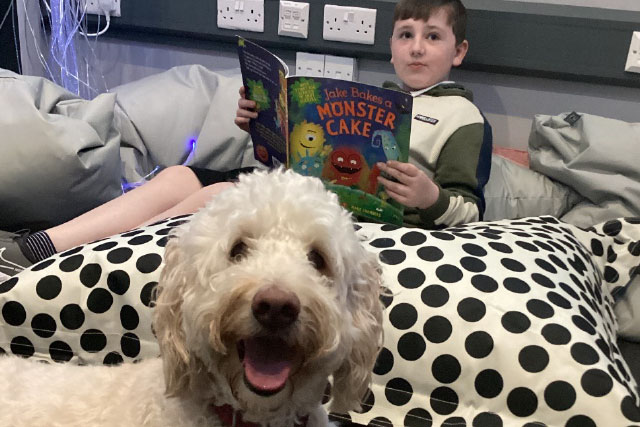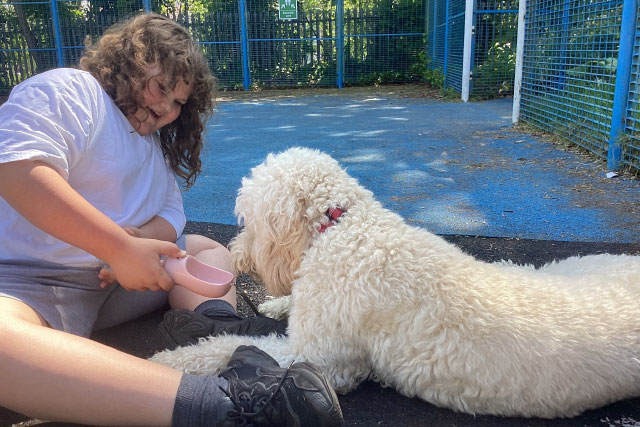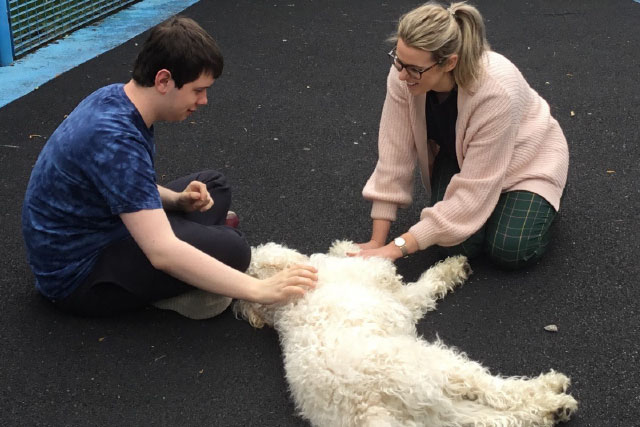Nico, our Therapy Dog, is a well-loved member of the therapy team and is always happy to provide plenty of hugs.
Nico started his role at Sundial at just a few months old and has since passed training created in partnership with the School Therapy Dog Association.
Nico’s temperament and training means he is well equipped to provide support for students and learners attending Wargrave House School and Ascent College.
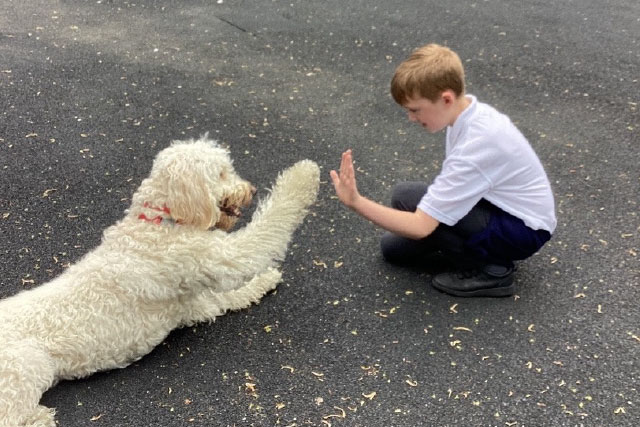
Therapy Dog support takes the form of 1:1 or group sessions and these are delivered both inside and outside the classroom environment, depending on the priorities and needs of the student or learner.
There are many evidenced benefits that therapy dog support but some of the main areas we work on are:
- Providing positive experiences (e.g. through fun activities such as enrichment games)
- Supporting the social, emotional and mental health and wellbeing of students (e.g. stroking Nico to relieve stress and anxiety)
- Sensory regulation (e.g. alerting and calming activities)
- Supporting students in transitions (e.g. lead walking, exploring less familiar areas, moving between locations)
- Supporting students to recognise and understand emotions (e.g. identifying feelings in Nico as these are often physical such as tail wagging, panting, lying down)
- Modelling roles and responsibility (e.g. dog care)
- Enhancing executive functioning skills (e.g. planning, organisation, sequencing)
- Supporting motor skills and coordination (e.g. creating obstacle courses and giving commands)
- Supporting social interactions (Nico is an attentive listener and doesn’t expect anything in return)
- Developing confidence in interactions with dogs (e.g. working with students who identify that they would like to feel less nervous around dogs – note: this is always led by the individual themselves)
- Supporting educational targets (e.g. reading, PE, Science)
What do students and learners say about Nico?
‘I used to feel scared around dogs but I don’t feel scared anymore’
‘He loves ear scratches’
‘It makes me feel better and more relaxed, I’m glad I have these opportunities’
‘I feel it’s helped me be ready for the day’
‘[He’s] a good dog Nico, I’m going to miss [him] when I leave’
‘He’s just so cute!’



